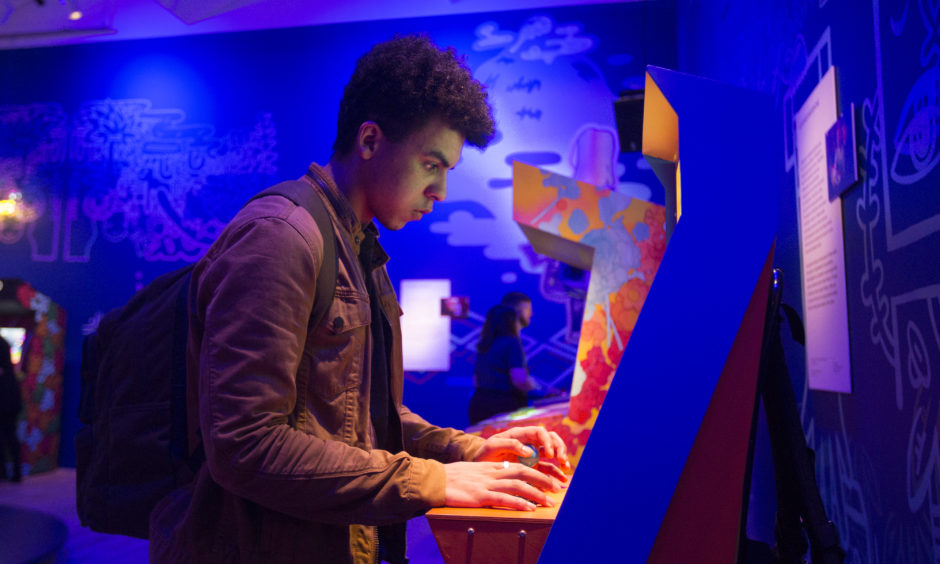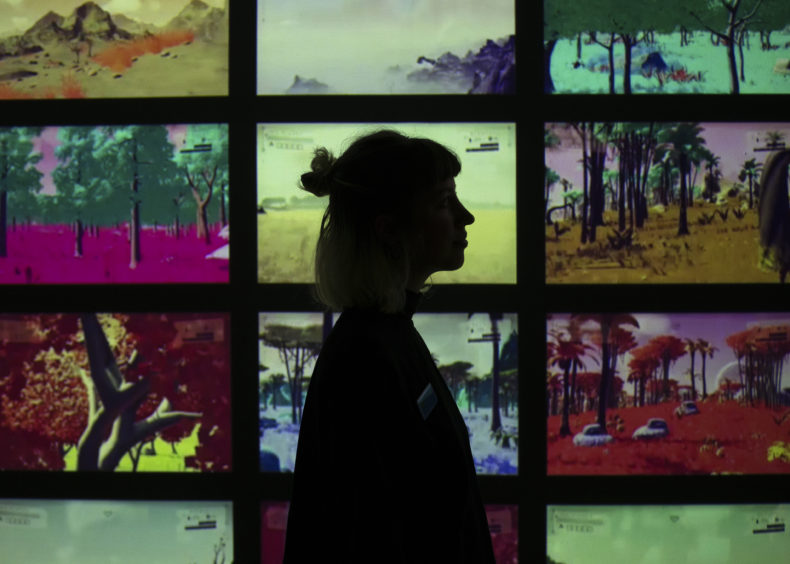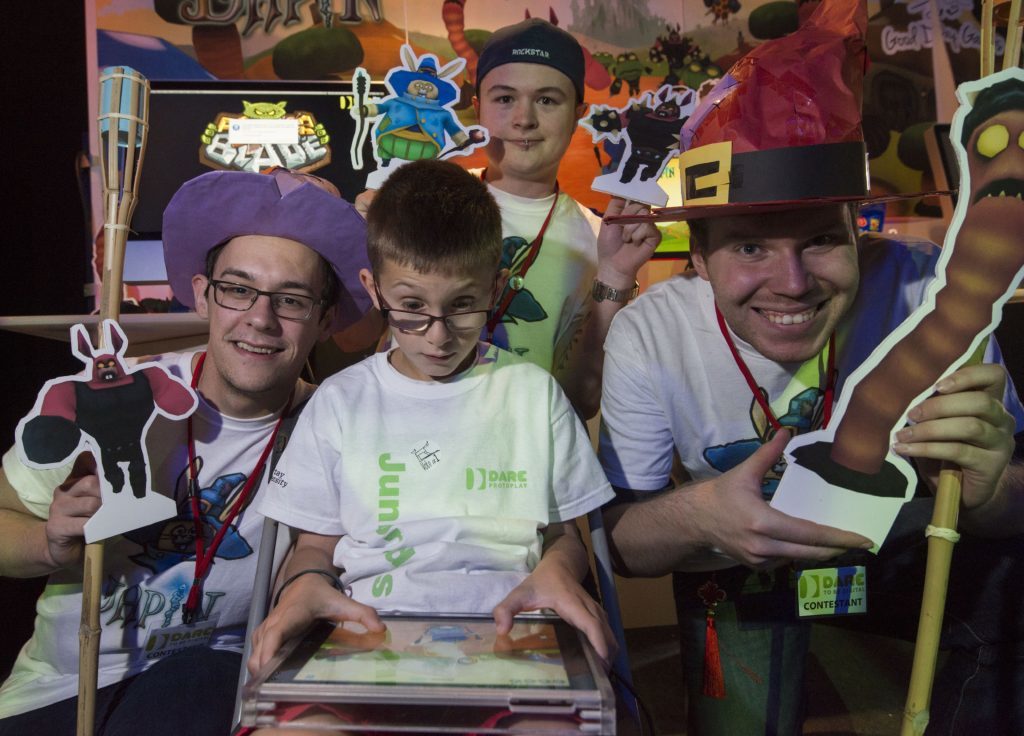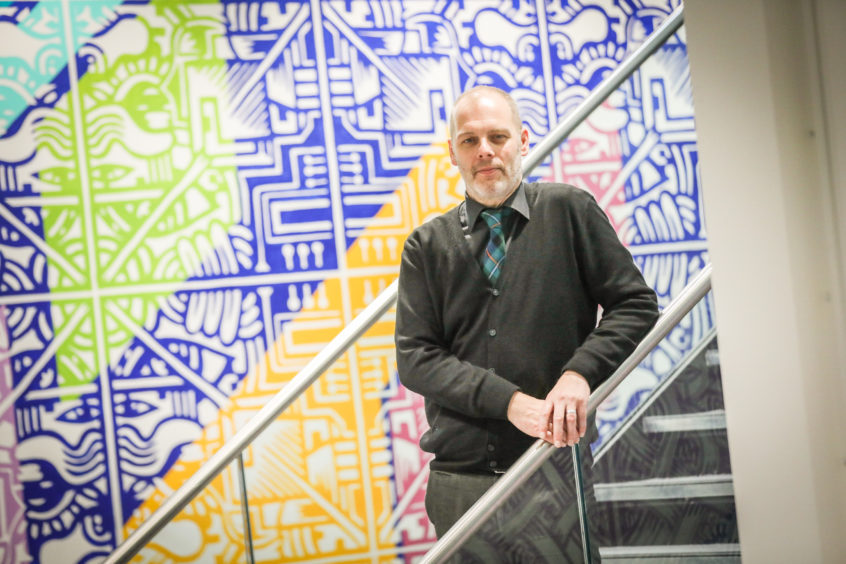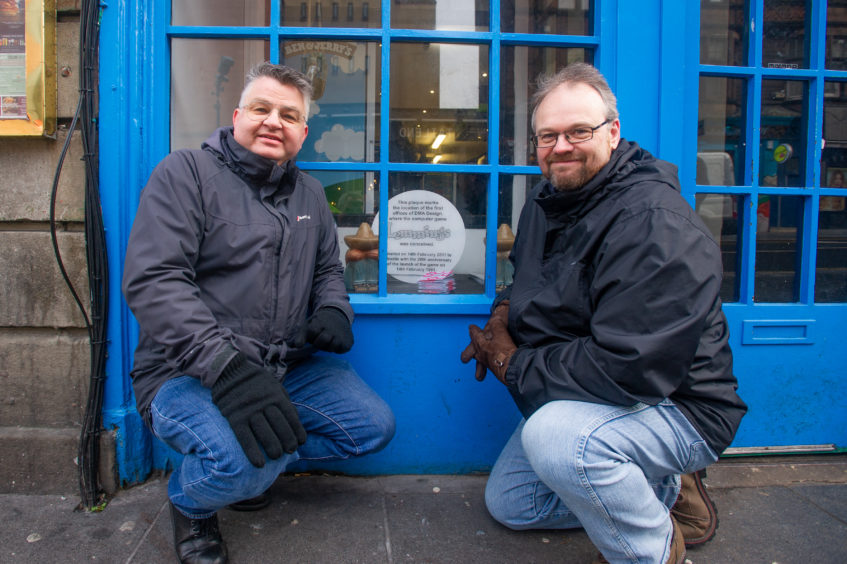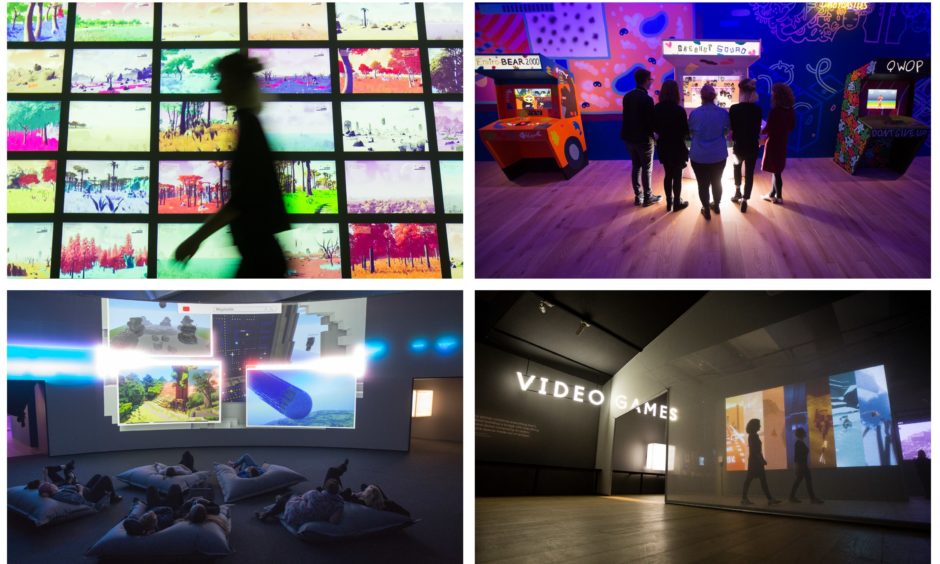With the UK’s video games industry now worth an estimated £3.86 billion, career opportunities are “massive”, Dundee industry experts tell Michael Alexander.
The majority of young people in Scotland would pick a career in the booming video games industry over more traditional professions, according to new research.
Barclays surveyed children aged between eight and 18 and found 73% of respondents would choose a career in gaming over becoming a lawyer.
Meanwhile, 57% would rather go with gaming than be a doctor or nurse and the same proportion would rather work in that industry than be a professional athlete.
Scotland has a rich gaming history with Rockstar North – the company behind the popular Grand Theft Auto franchise with more than six billion dollars (£4.6 billion) in global revenue – based in Edinburgh as well as a number of other firms originating in Dundee.
But at a time when an Ofcom survey has revealed the majority of parents now believe their children’s social media and online activity does more harm than good, do career prospects in the video games industry really exist, or is it wishful thinking from young minds already spending too much time glued to their screens?
David Martin, key sector manager of Creative Industries for Skills Development Scotland said the career opportunities are very real.
He told The Courier: “With more than 2.5 billion gamers around the world, video gaming is the biggest entertainment category in the world – worth more than £140 billion dollars – and with the rising popularity of mobile gaming and e-sports, and innovations like VR (Virtual Reality) and AR (Augmented Reality), it will continue to grow at pace.
“Scotland’s gaming sector is relatively small, but we still expect to see job opportunities rise by more than 2% every year.
“But as importantly, the gaming companies in Scotland, and Dundee in particular, are punching way above their weight in terms of global influence and impact so there are massive opportunities for young Scots across the globe.
“In addition to working directly for video game developers, the softer skills learned by gamers are hugely transferable and very welcome. Things like curiosity, creativity, design thinking, problem solving, collaboration and critical thinking will stand gamers in good stead for a range of different jobs beyond just working in video games.
“If children are gaming in a balanced way with other interests in their lives, then they are doing something which will help them develop amazing skills, both personally and professionally, for the future.”
The global reputation of Abertay University in Dundee was recognised last year when its video games degrees were ranked as the best in Europe for the fifth year running.
Abertay was ranked top in the prestigious annual The Princeton Review with the site rated number one in Europe for undergraduate level game courses. It also broke into the top 10 in the world for postgraduate courses, according to the study.
Abertay’s Dean of the School of Design and Informatics, Professor Gregor White said it is encouraging to see such a high level of interest from young people keen to be part of the videogames industry, particularly given its expansion to become one of Scotland’s key sectors over the last decade.
He said: “While the entertainment side of the videogames industry has enjoyed a surge in popularity with the advent of online gaming, it’s important to also understand the diversity of work that falls under the ‘games’ umbrella, and the breadth of job opportunities available to our highly-skilled graduates.
“Production of playable educational tools, visualisations for healthcare staff, gamification projects for businesses and a large variety of screen media roles are just some of the career paths available that many members of the public wouldn’t necessarily be aware of.
“Although big budget entertainment franchises still account for much of the sector’s value, the mobile games market is not to be overlooked and has been a key area of success for the Dundee cluster in particular, with Abertay providing the talent pipeline for these SME or start-up companies.
“Adding to that, the Dundee-based InGAME R&D project, which is also led by Abertay, is currently looking at new and innovative ways of enhancing the Scottish games industry, and with emerging technologies such as AR starting to take off, there’s plenty of potential for future growth.”
Someone who became a video games pioneer in Dundee even before the creation of the Abertay courses was Mike Dailly, now of Ogre Games Ltd.
The former Kingsway Amateur Computer Club member was a coder who worked on the original animation that spawned Lemmings – the 1991-launched video game by DMA Design that went on to sell 20 million copies worldwide.
The game is credited with being the platform that helped establish Dundee’s now famous computer games industry.
Mike, 49, who also worked on the prototype of Grand Theft Auto, described game development as a “wonderfully fulfilling career to get into”.
And he said there are many career paths open to young people wanting to make their dreams come true ranging from artist, programmer and musician to producer, tester and business development.
“In general, it’s a great environment, full of amazingly talented people in a job that actually pays pretty well – especially for those who stick at it,” he said.
“As to parents’ concern, this is far from unusual. My own mother claimed there was no future in games way back in 1989, yet here I am, 30 years on, still loving every second of it.
“It’s an industry that’s grown and grown, so much so that it’s now bigger than music and movies combined – and it continues to grow!”
That said, Mike said the industry is “incredibly competitive”.
It’s a true global industry and it’s common for companies to have employees from all over the world – which can work both ways of course.
“Dundee is also well suited for kids to get involved and start their own journey,” he said: “with Abertay offering possibly the best games course in the world, backed up by many industry veterans who drop by to help out and talk to students.
“They also lead the way in helping graduates set-up their own endeavours if they want to make it on their own.
“The fact that Dundee has such a large number of companies, and such a large number of 20+ year industry veterans, proves the point more than anything – anything is possible if you have the drive and dedication to make it. Just don’t think you’ll be playing games all day!”
